Alexandra McGee, Counterpunch, February 14, 2014– On February 13th, 2014, I attended a UC Berkeley protest against the appointment of Janet Napolitano as President of the UC system.* The qualms against her appointment fall outside of my purview to describe here. This piece is much larger than Napolitano, or the protest itself. Instead, lets look at how systemic economic inequality has affected the mentality (and thereby the capability for action) of my generation.
Organized by the Associated Students of the University of California, the protest attracted upward of 500 people, purported thousands if you count onlookers and those who bore witness momentarily. With protest signs, cloth banners, megaphones and fists of solidarity, this crowd of young students had been protesting since 10 am. I started asking onlookers what their motivations were for being there and what they thought of the movement until I realized, this was no real protest.
Napolitano was in Sutardja Dai Hall. Protesters had taken the nearby Blum Center For Developing Economies. We stood, fists held high and shouting into a megaphone, all pointed in the opposite direction from our supposed target. Sutardja Dai Hall was inconveniently guarded, with five large men guarding the bottom entrance, doors locked on the second floor, three cops with shiny sunglasses glaring down at us from the top floor and two cops on bikes circling the building. News reporters stood aside, pointing their video camera into the disjointed group, many of whom were unaware of what our strategy was, or what our demands were.
Why aren’t we occupying Sutardja Dai Hall?
I began to ask those around me. The ASUC had emphasized that they were “not going to negotiate with Napolitano on the issue of her resignation.” But how would occupying a nearby building do anything at all? Why are we not engaging in constructive dialogue? “El pueblo unido jamas sera vencido!” But how will chanting together do anything but stroke our own egos? “But this is Berkeley, radicals. All of us!” Pure ideological masturbation unless you do something provocative to cause change.
I am frustrated that Berkeley continues to perpetuate the myth of its activist lifestyle for economic gain. It sells an image of the rebel protester, the ideological martyr, to a generation of youth that cannot find their way four blocks north without GPS, never mind find their way past the bureaucratic labyrinth to create substantial change. With their tuition and the gradual privatization of education (see: millions of dollars from ecologically destructive corporations like BP), they perpetuate the inequality of wealth and even endorse human rights abusers, as they have by allowing Napolitano to be their system president.
If Mario Savio were amongst us, he would hang his head in absolute shame. Not just at the cafe on campus toting his name as a publicity stunt, but at our failure to question the status quo. To disturb the system, you don’t occupy a building which poses no strategical advantage, you don’t chant just to make yourself feel good, and you do not boast that you are creating community when really all you’re doing is attracting people who want to update their facebooks with a new “rebel” profile picture.
This frustration is also fueled by great hope that I once had in the Occupy movement. Surrounded by well-intentioned, intelligent people, I was sure that change was in our grasp, but we were outlasted in our patience, overcome by our fragmentation, and overconfident in our abilities. Now, I was ready to rush the police to occupy a space of power for those who couldn’t. To represent those who had been deported from their country because of Napolitano’s discriminatory policies. To recognize our own humanity in a space where we would not be welcome. To demand recognition and respect as a human being rather than an authorized citizen.
But doing so would require facing down strongmen of the establishment. To do so would put in jeopardy our clean police records with some nonsense charge of non-compliance. As a fellow protester said, she worried that if we actually tried to change something, she wouldn’t be able to get a job because it would show up on her record. She didn’t actually think anything would change.
Bulls eye. Compliance to capitalism fueled by fear. The threat of economic punishment if we are labeled as radical.
Read More: Counterpunch

 Follow
Follow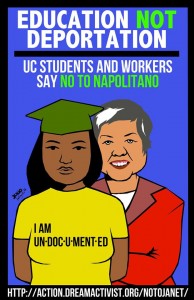
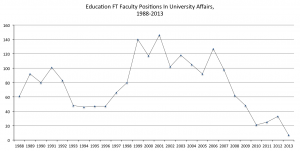
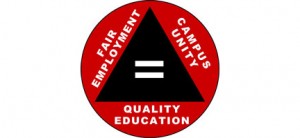

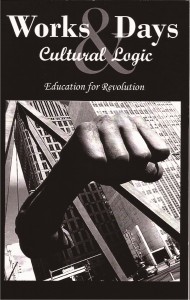

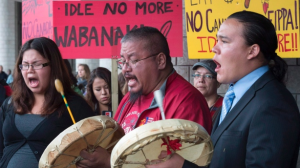

Reasonable hostility: Academic freedom & speech under threat #highered #edstudies #criticaled #bced #bcpoli #ubc #yteubc
No disrespect, but… Politic for politic, as faculty and student activism over the last decade was generated in response to administrative measures taken to devalue academic budget lines and increase debt loads, administrators formed policies that shored up their powers to police campus speech and launch investigations. Following an introduction of a Respectful Environment policy in 2008, in anticipation of an upcoming political protest on campus in March 2009, the President of UBC circulated a “Respectful Debate” memo warning students and faculty to “pay special attention to the rules that govern our conduct” for speech. Legislation of respect entangles or snares the left and right in the same finely meshed dragnet attenuating civil liberties. This also recalibrates a network of surveillance media and technologies, challenging nearly all protections in the workplace. Some self-identified centrists or voices of reason welcome the new measures, adopting roles of third persons while reporting to administrators that loose lips sink scholar-ships.
In Canada and the US, these new respectful workplace policies, which anticipate or respond to workplace legislation and court decisions, mean that academic freedom and charter or constitutional rights noticeably contract at the campus gates. Watching postsecondary institution by institution adopt similar respectful workplace policies, the Executive Director of the Canadian Association of University Teachers (CAUT), issued a memorandum in late March 2009 advising vigilance: “the test of ‘disrespect’ identified in these policies is for the most part experiential and subjective – notions like ‘feelings of shame’ or ‘embarrassment’ crop up repeatedly.” He subsequently asserted, “a major problem in Canadian universities is not that too many people are asserting their academic freedom, but that too few are.”
Similar policies in the US are compounded by the Supreme Court’s 2006 Garcetti v. Ceballos opinion that “when public employees make statements pursuant to their official duties, the employees are not speaking as citizens for First Amendment purposes, and the Constitution does not insulate their communications from employer discipline,” reinforcing managerial discretion and prerogative. Although academic freedom remains a special concern of free speech rights and was deferred by the Court in Garcetti, legal analysts such as Harvey Gilmore concur that “Garcetti has now become the definitive statement on a public employer’s discretion in managing office operations, and that discretion includes controlling an employee’s speech made in the scope of the employee’s professional capacity.”
Following legislation in four other provinces, on 1 July 2012 new legislation in BC came into effect through an amendment of the mental disorder section of the Workers Compensation Act. The new amendment in Section 5.1 provides for potential compensation if the disorder
(i) is a reaction to one or more traumatic events arising out of and in the course of the worker’s employment, or
(ii) is predominantly caused by a significant work-related stressor, including bullying or harassment, or a cumulative series of significant work-related stressors, arising out of and in the course of the worker’s employment.
For legal preparation for this legislation now common across Canada, universities such as UBC folded a large scope of potential infractions into their respectful workplace policies. What stands as protection for disability or “mental disorder” and against “bullying or harassment” under the law is extended in higher education policy to common modes of academic speech—commentary and criticism—that might be articulated in the wrong tone.
Offices of Human Resources introducing or monitoring respectful workplace policies oversimplify speech by stressing, “it is not what you say but how you say it that counts.” Repeated in HR across higher education and curiously by some administrators, this folksy maxim come respectful workplace policy draws on centuries of etiquette texts. “Rather than seeing public talk occasions as needing politeness or civility, a better norm” Karen Tracy proposes, “is reasonable hostility.” She effectively hashes out parameters for democratic communicative practice and flips this “aphorism on its head, it is not merely how something is said, but what a person says that matters.”
Only certain types of face-attack are legitimate and desirable in local governance situations. ‘Reasonable hostility’ is the name for acts that are. Reasonable hostility involves person-directed attack; it is remarks that imply disrespectful, undesirable things about others. Targets of reasonable hostility will judge speakers uttering those remarks to be rude, disrespectful, unfair, and so on…. A speaker might be cognizant that his or her remarks may have this effect, but their purpose is to express outrage about a wrong. The speaker sees self’s central aim as witnessing a truth or expressing righteous indignation.
Faculty and students are bookended by a reformalization of academic speech on one side and a normalization of administrative equivocation, deception included, on the other. Can voices of critique and voices of liberty speak together, with reasonable hostility, as a voice of truth? Can the left and right speak (together)?
Read More: Petrina, S. & Ross, E. W. (2014). Critical University Studies: Workplace, Milestones, Crossroads, Respect, Truth. Workplace, 23, 62-71.
Comments Off on Reasonable hostility: Academic freedom & speech under threat #highered #edstudies #criticaled #bced #bcpoli #ubc #yteubc
Posted in Academic freedom, Accountability, Administration, Advocacy, BC Education, Censorship, Commentary, Critical University Studies, Ethics, Faculty, Free speech, Legal issues, Organizing, Solidarity, Student Movement, Students, Unions, Working conditions
Tagged Academic freedom, Administration, Ethics, Free speech, Legal issues, Organizing, Students, Working conditions